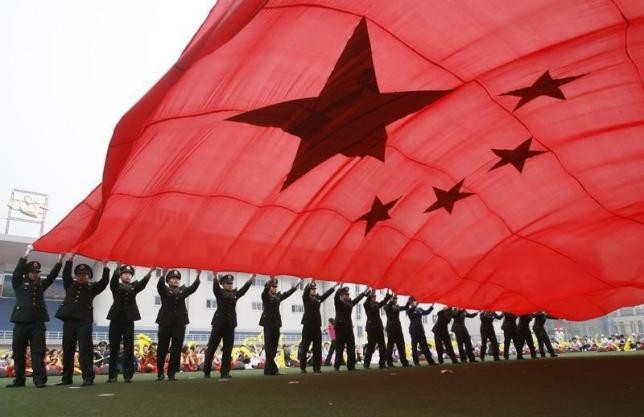China released on Tuesday the official record of lives and property lost during World War II, a move that, analysts said, highlights the country's efforts and sacrifices during the conflict.
According to official data, China suffered more than 35 million military and civilian casualties, with military casualties reaching more than 3.8 million.
This is one-third of the total number of casualties of the Second World War, Wang Jianliang, director of the Institute of Modern History at Chinese Academy of Social Sciences (CASS), told a press conference on Tuesday.
In turn, Wang said that Chinese forces killed, wounded and captured over 1.5 million Japanese troops in the war.
The official property loss suffered by the Chinese people was valued at more than $100 billion based on 1937 exchange rates, and that indirect economic losses reached as high as $500 billion.
The release of the official record comes amid the government's heightened efforts to commemorate the 70th anniversary of the end of World War II, also known as the War of Resistance against Japanese Aggression, in Beijing in September.
"China wants to commemorate the victory to boost people's confidence after achievements made by the reform and opening-up policy, but more importantly China is appealing to the international community to cherish and protect world peace," Zhou Yongsheng, a professor at China Foreign Affairs University, said in an interview with the Global Times.
Zhou emphasized that the celebrations are not directed against any country, but will serve as deterrent to Japanese right-wing radicals.
"The results [of the war record] are based on sound facts, including historical documents and testimony, which helped expose crimes committed by the Japanese invaders. It is also a response to denials by Japanese right-wing forces of the [war] aggression and a reflection of the sacrifices made by Chinese people," Li Zhongjie, former deputy-director of the Communist Party of China (CPC) history research office, said during the conference.
The statistics given by the authorities are more concrete and authoritative, which could help ordinary Japanese learn about history and may in turn urge the Japanese government to make sincere apologies, said Zhou.
According to scholars at the conference, battles against Japanese forces were held solely in China before 1941 and that it helped stall and resist approximately 80 percent of the entire Japanese army.
Analysts said that the official records could help improve Sino-Japanese relations in the long run, as it unravels historical issues and eases mistrust between the two countries.
"Japan is uneasy with China's rapid development. Meanwhile, U.S. policy toward China and Japan, including its acquiescence to Japan's expansion of its self-defense, has also affected Sino-Japanese relations," Yang Bojiang, director of Japanese studies at the China Institutes of Contemporary International Relations, told the Global Times.
Japanese Prime Minister Shinzo Abe plans to express "deep remorse" over World War II in a statement before Aug. 15, the 70th anniversary of Japan's surrender, but he is unlikely to offer an apology for the war, Kyodo News reported.
China has extended an official invitation to Abe to attend the victory parade, according to several Chinese media agencies. However, Japan's Chief Cabinet Secretary Yoshihide Suga said on Monday that Japan "has not yet received an invitation letter" and that "nothing has been decided at this point."






















